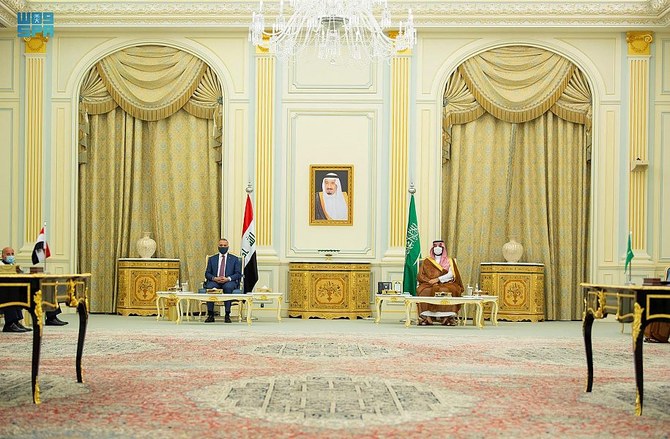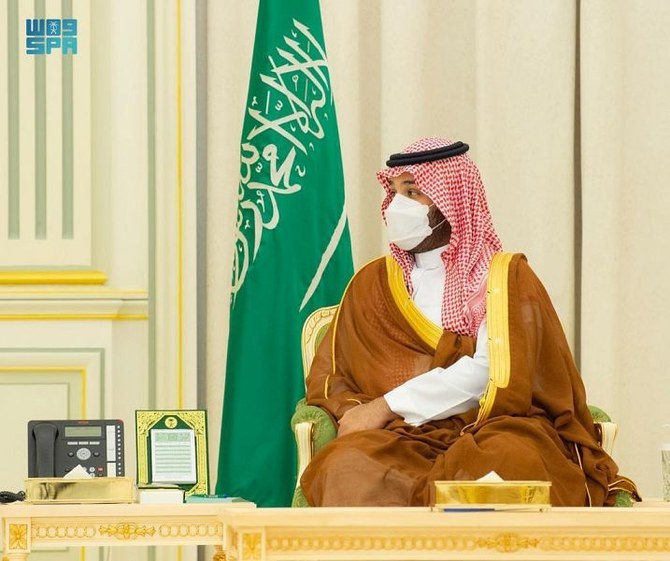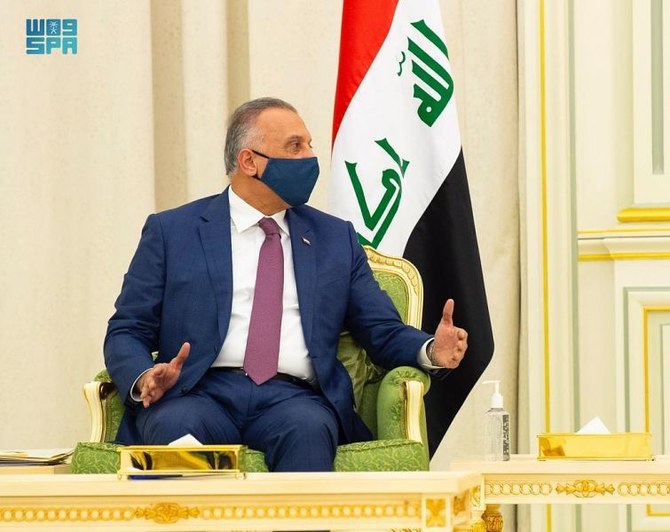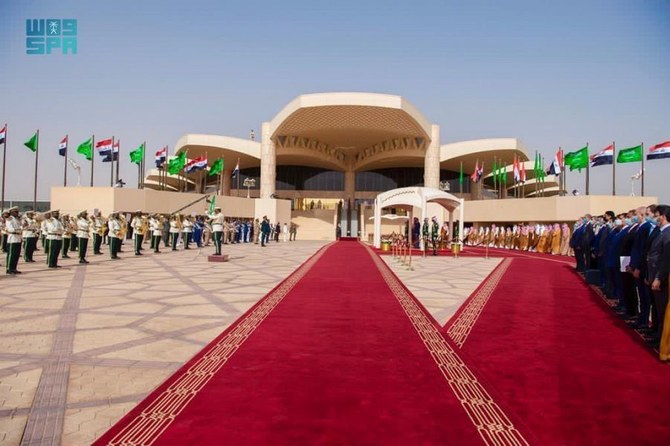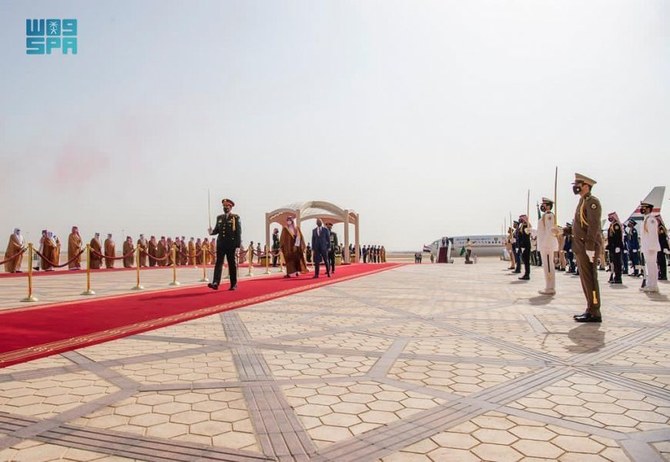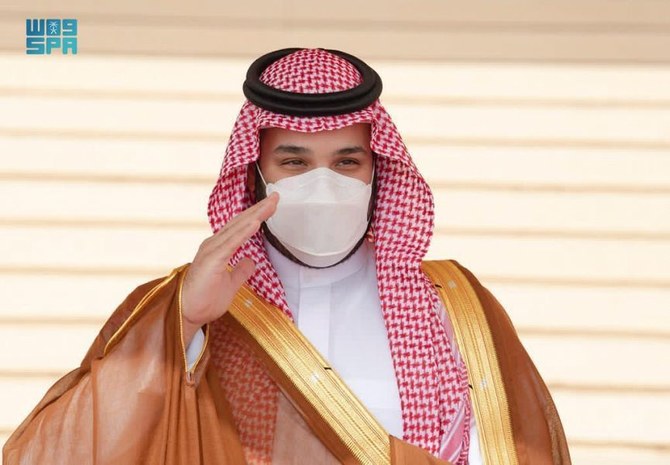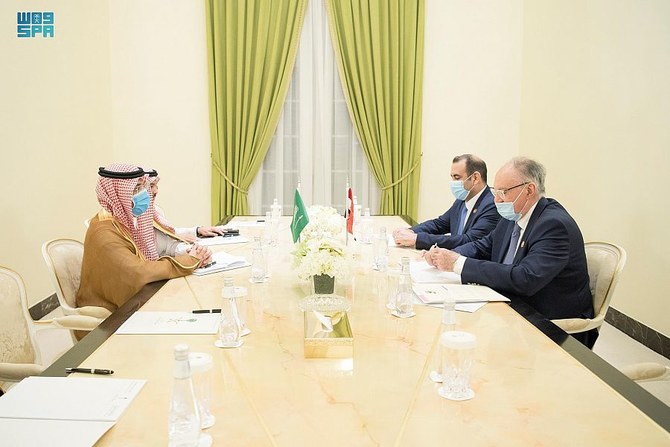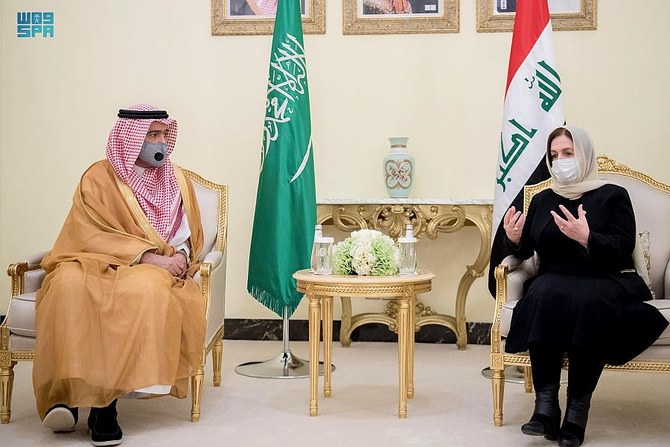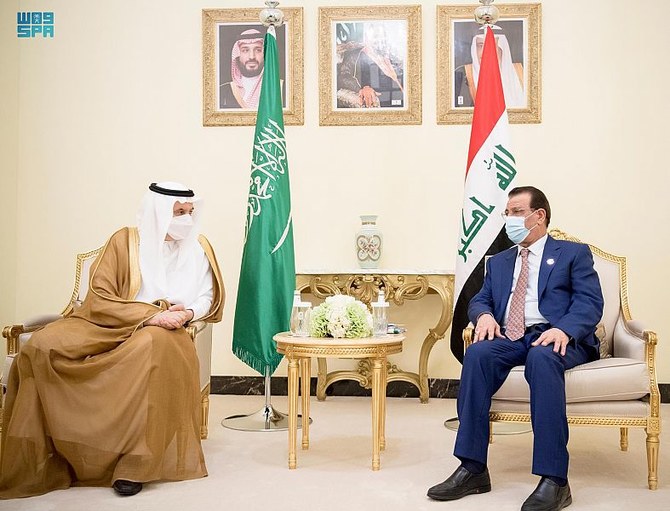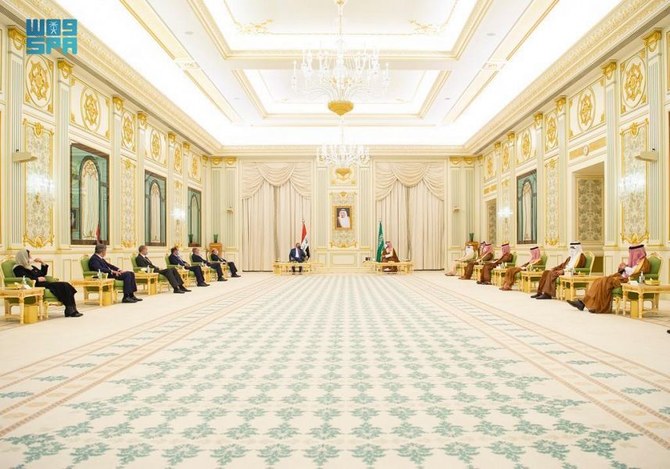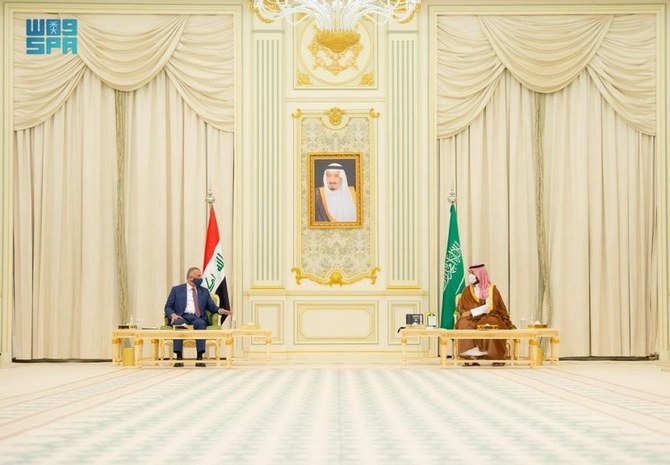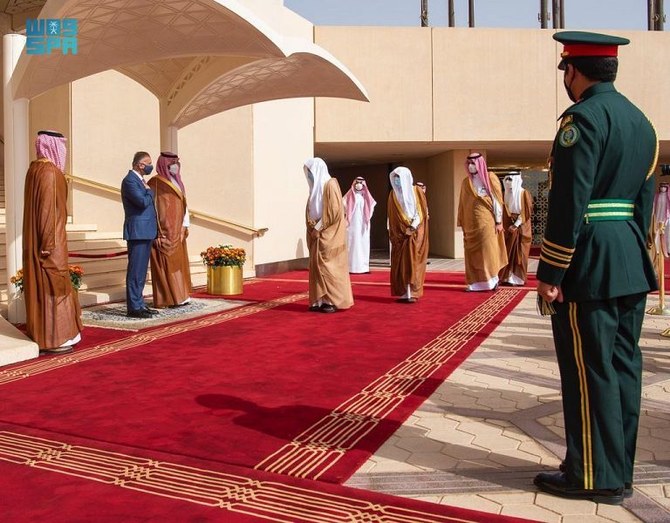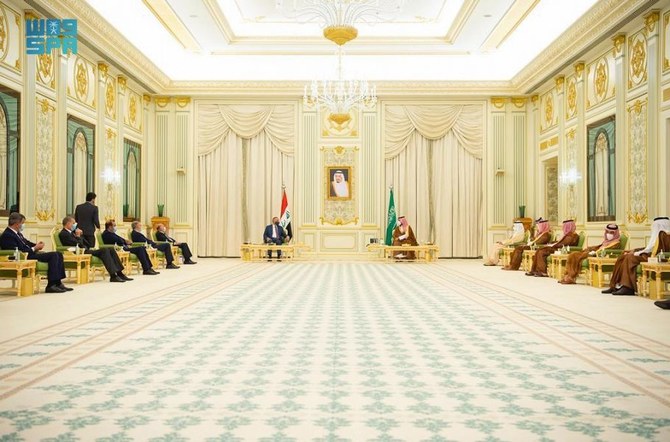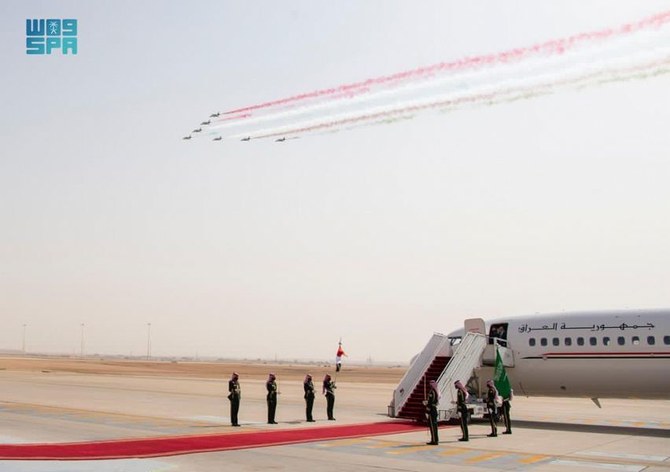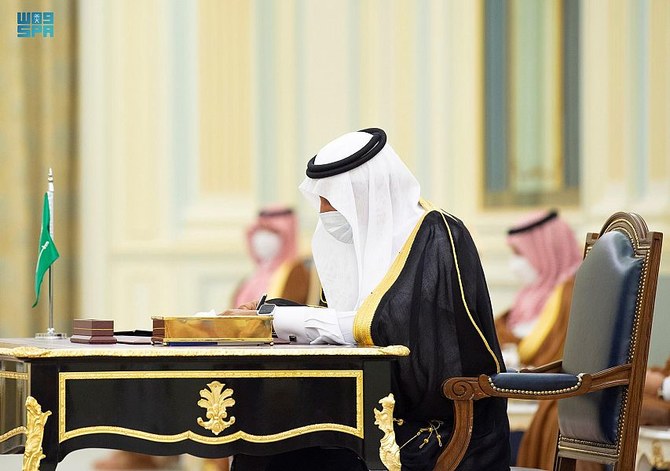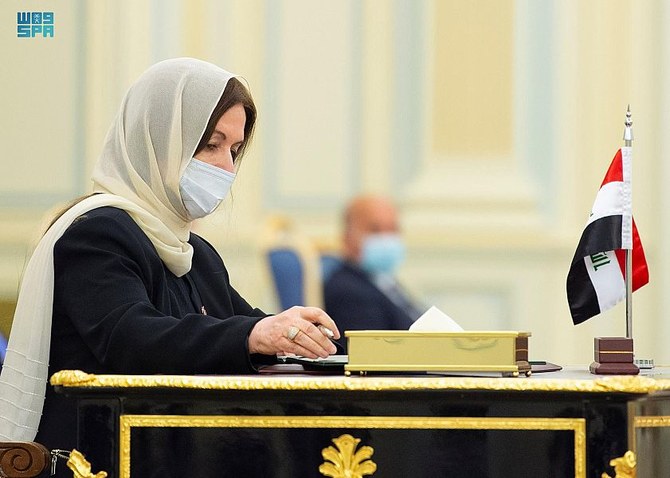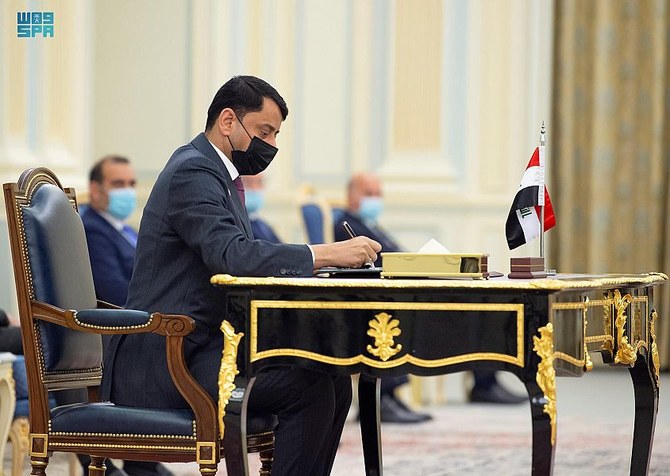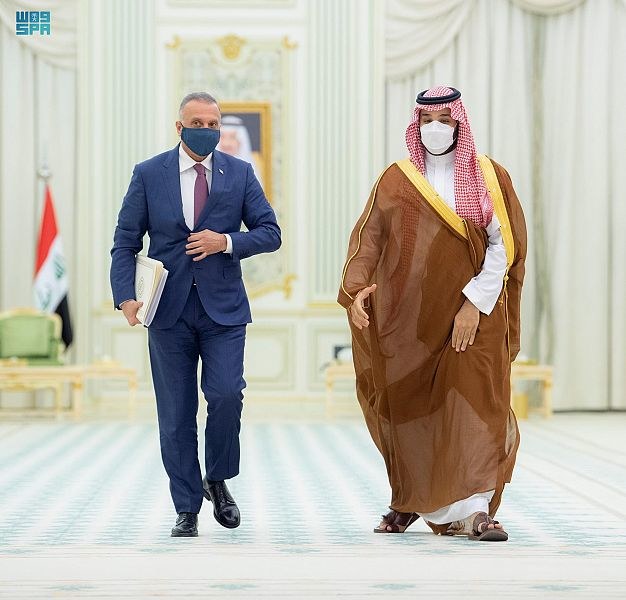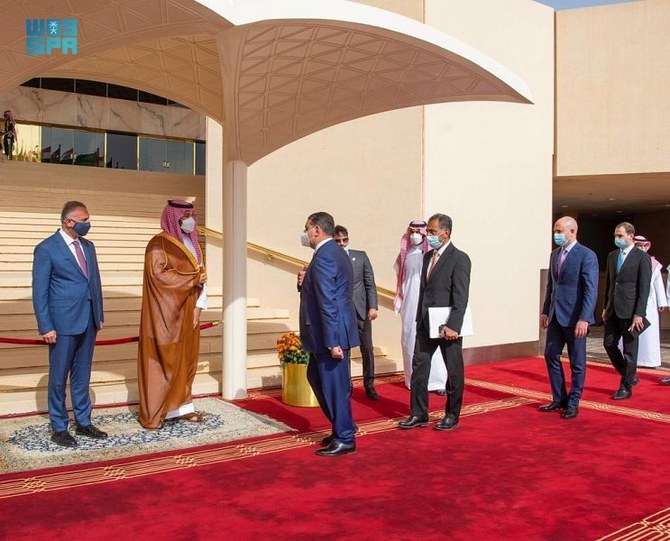RIYADH: Saudi Arabia’s Crown Prince Mohammed bin Salman and Iraqi Prime Minister Mustafa Al-Kadhimi agreed Wednesday on the need for their countries to continue coordinating in confronting extremism and terrorism.
Meeting at the Yamamah Palace in Riyadh, the two leaders also agreed to boost economic cooperation, starting with the creation of a joint Saudi-Iraqi fund worth $3 billion.
A joint statement issued after the meeting described the fund "as a contribution from the Kingdom to promote investment in economic fields in Iraq to benefit both their economies."
The two neighbors also agreed to continue cooperation within the Organization of Petroleum Exporting Countries (OPEC) and with full commitment to the requirements of the OPEC+ agreement.
Al-Kadhimi arrived in Riyadh on Wednesday for the visit on the invitation of King Salman.
As he disembarked the plane, 21 rounds of artillery were fired to welcome him, while Saudi jets drew the Iraqi flag in the skies above.
Both countries’ national anthems were played, and then Al-Kadhimi reviewed the honor guard. A number of Saudi officials, ministers and leaders of military sectors were present at the welcoming reception.
The crown prince welcomed the official delegation accompanying the prime minister, including Foreign Minister Fuad Hussein, as well as the ministers of finance, interior, oil, agriculture and housing.
The crown prince and the prime minister then headed to the Royal Court at Al-Yamamah Palace in a motorcade.
During the talks, they “exchanged views on regional and international issues of concern to both countries, in a way that contributes to supporting and enhancing security and stability in the region and the world,” a joint statement said.
The two sides praised the outcomes of Al-Kadhimi’s video call with King Salman last week where they stressed the importance of strengthening relations between the Kingdom and Iraq and enhancing the work of the Saudi-Iraqi Coordination Council.
The crown prince and the prime minister said they would continue to develop cooperation in various fields, especially political, security, military, commercial, investment, cultural and tourism.
Saudi Arabia said it would continue to support Iraq and the Global Coalition to remove the remnants of Daesh from the country. They also agreed on the importance of joint cooperation in securing the safety of their borders.
They agreed to complete the electrical interconnection project and to accelerate cooperation in the petroleum field, within the scope of the OPEC+ agreement to ensure the stability of global oil markets.
Iraq thanked the Kingdom for its efforts toward rebuilding the country and for its support in confronting the COVID-19 pandemic. Baghdad also commended the newly announced Saudi Green Initiative and the Middle East Green Initiative that will be launched soon and said it was ready to support the Kingdom.
Bilateral agreements were signed including agreements to avoid double taxation, for cooperation in the field of development planning for economic diversification and private sector development, and on financing Saudi exports.
An agreement was signed between the Iraqi Media Network and the Saudi Radio and Television Authority, and a cooperation agreement was signed in the field of culture.
Later, Al-Kadhimi was accompanied by Prince Mohammed on a tour of Diriyah’s Al-Turaif district.
Ahead of his arrival, Al-Kadhimi said the visit was “aimed at consolidating the distinguished relations between our two brotherly countries, and establishing prospects for fraternal cooperation between the countries of the region, in a way that serves our peoples, achieves stability, and dedicates values of building and integration, based on the common things that unite us.”
Saudi Foreign Minister Prince Faisal bin Farhan held a meeting with Hussein separately to discuss bilateral relations and ways to enhance them in various fields.
Saudi Finance Minister Mohammed Al-Jadaan met with his Iraqi counterpart Ali Allawi in Riyadh, to review relations and discuss issues of common interest.
Bilateral meetings were also held between the ministers of housing of both countries and the ministers of agriculture, within the framework of the Saudi-Iraqi Coordination Council.
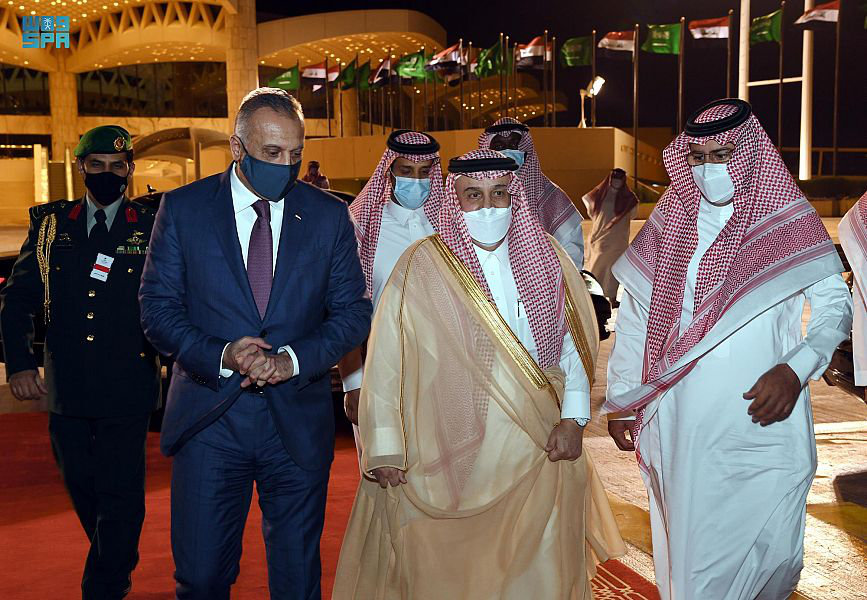
PM Al-Kadhimi, left), is seen off at Riyadh's King Khalid International Airport by Saudi officials led by Riyadh region Gov. Prince Faisal bin Bandar bin Abdulaziz. (SPA)
Al-Kadhimi also met with Saudi minister of investment Khalid bin Abdulaziz Al-Falih, the chairman of Saudi Chambers Ajlan Al-Ajlan and several Saudi businessmen and discussed strengthening Saudi private sector investments in Iraq.
Al-Khadimi promised to facilitate investment opportunities by eliminating the obstacles facing businessmen.
Al-Falih assured Al-Khadimi that King Salman’s government "continues, without any hesitation, to support the Saudi private sector’s investment in Iraq.
After the flurry of meetings, Al-Kadhimi left the Saudi capital and was seen off at the King Khalid International Airport by a number of officials led by the governor of Riyadh region, Prince Faisal bin Bandar bin Abdulaziz.


